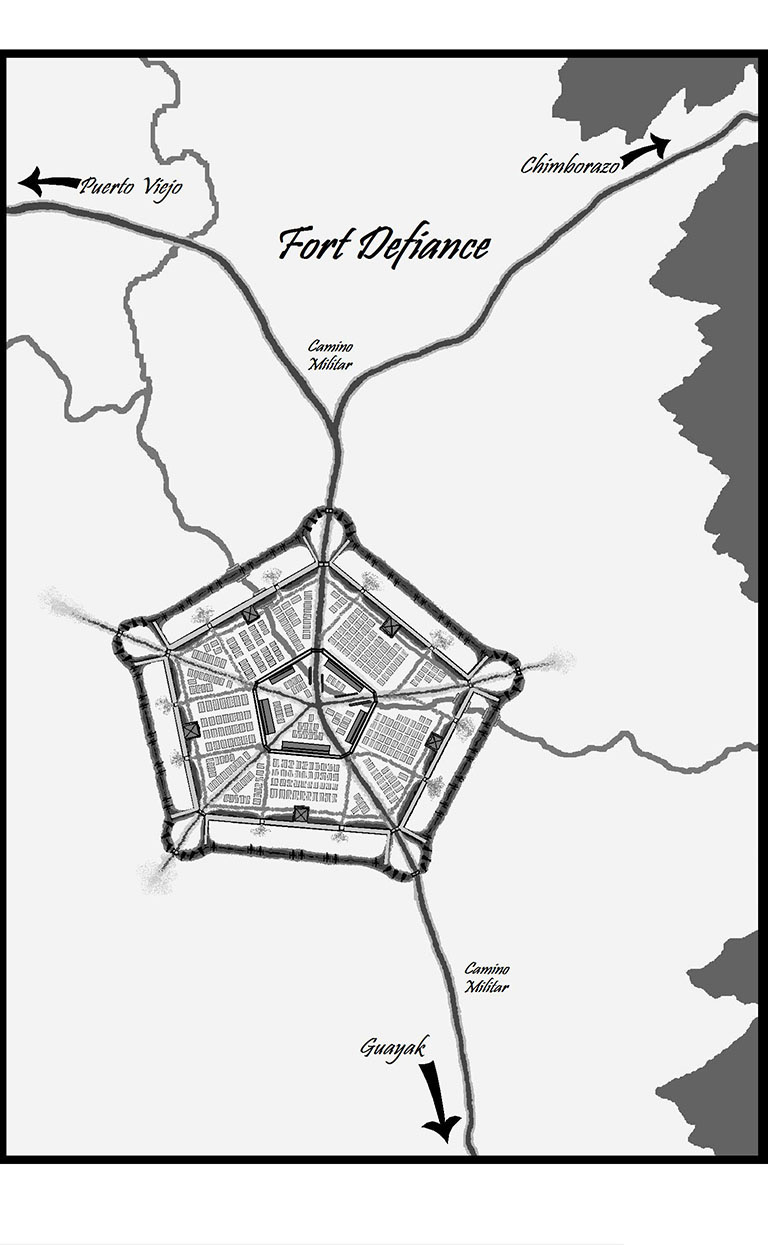Straits of Hell (2 page)
Authors: Taylor Anderson

USS
Tindal
***
USS
Finir-Pel
***
Lt. Haan-Sor Plaar (L)â
Commanding.
HIMS
Achilles
Lt. Grimsleyâ
Commanding.
HIMS
Icarus
Lt. Parrâ
Commanding.
USS
Simms
***
Lt. Ruik-Sor-Raa (L)â
Commanding.
USS
Pinaa-Tubo
(Ammunition ship)
Lt. Radaa-Nin (L)â
Commanding
.
USS
Pecos
â
Fleet Oiler.
USS
Pucot
â
Fleet Oiler.
Second Fleet Expeditionary Force: (X Corps)â
4 regiments Lemurian Army and Marines, 2 regiments “Frontier” troops, 5 regiments Imperial Marinesâ(3 Divisions) w/artillery train.
General Tomatsu Shinyaâ
Commanding.
Colonel James Blairâ
Exec.
Major Dao Iverson
âCommanding Second Battalion, 6th Imperial Marines.
Nurse Cmdr. Selass-Fris-Ar (L)â
“Doc'selass” Daughter of Keje-Fris-Ar.
Capt. Blas-Ma-Ar “Blossom
”
(L)â
Commanding 2nd Battalion, 2nd Marines.
Spon-Ar-Aak “Spook
”
(L)â
Gunner's Mate, and 1st Sgt. of “A” Company, 2nd Battalion, 2nd Marines.
Lt. Staas-Fin “Finny” (L)
â“C” Company, 2nd Battalion, 8th Maa-ni-laa.
Lt. Faal-Pel “Stumpy” (L)
â“A” Company, 1st Battalion, 8th Maa-ni-la. Former ordnance striker.
Lt. (jg) Fred Reynolds
âFormerly Special Air DivisionâUSS
Walker
.
Ensign Kari-Faask (L)
âReynolds's friend and “backseater.”
Army of the Sisters
Saan-Kakja (L)
âHigh Chief of Ma-ni-laa and all the Filpin Lands.
Governor-Empress Rebecca Anne McDonald
Sister Audryâ
Benedictine nun, and commander of El Vengadores de Dios, a regiment raised from penitent Dominion POWs on New Ireland.
Colonel Arano Garcia
Lt. Ezekial Krish
General Ansik-Talaa (L)
âFilpin Scouts.
Sergeant “Lord” Koratin (L)
âMarine protector and advisor to Sister Audry.
Attached DDs:
HIMS
Ulysses
,
Euripides
,
Tacitus
Enemies
General of the Sea Hisashi Kurokawa
âFormerly of Japanese Imperial Navy battle cruiser
Amagi
. Self-proclaimed “Regent” and “Sire” of all India, but currently confined to Zanzibar.
General Orochi Niwa
âfriend and advisor to General Halik.
“General of the Sky” Hideki Muriname
“Lieutenant of the Sky” Iguriâ
Muriname's Exec.
Signal Lt. Fukui
Cmdr. Rikuâ
Ordnance.
Grik (Ghaarrichk'k)
Celestial Motherâ
Absolute, godlike ruler of all the Grik, regardless of the relationships between the various Regencies.
The Chooser
âHighest member of his “order” at the court of the Celestial Mother. Prior to current policy, “choosers” selected those destined for lifeâor the cook potsâas well as those eligible for “elevation” to “Hij” status.
Ragak
âRegent Consort of Sofesshk.
General Esshk
âFirst General of all the Grik, and acting Champion Consort to the new Celestial Mother.
General Ign
âCommander of Esshk's “new” warriors.
General Halik
âElevated Uul sport fighter.
General Ugla, General Shlook
â“Promising” Grik leaders under Halik's command
.
Holy Dominion
His Supreme Holiness, Messiah of Mexico, and by the Grace of God, Emperor of the Worldâ
“Dom Pope” and absolute ruler.
Don Hernan DeDivino Dichaâ
“Blood Cardinal” and new commander of the “Army of God.”
General Ghanan Nerino
League of Tripoli
Representatives at Zanzibar:
(French) Capitaine de Fregate Victor Gravois
Aspirant Gilles Babin
(Spanish) Commandante Fidel Morrillo
(Italian) Maggiore Antonio Rizzo
Teniente Francisco de Luca
(German) Oberleutnant Walbert Fiedler




Â
Â
Â
Â
If I have di
scovered one genuinely profound truth in all my travels and adventures, it is this: mercy is a moral construct that does not exist in nature. No unthinking (as we would define it) creature possesses the merest notion of mercy. Raw nature quite literally subscribes only to the “law of the jungle” in which creatures kill, or are killed, for food, territory, breeding opportunities, and, yes, even pleasure. Those on the world from whence we came who naively maintained that Man is the only animal that kills for pleasure are foolsâwho have never seen their beloved, sated house cat torment its prey in the most horrid fashion. Their little monster is not hungry, nor does it fear for its life. Its prey, a small bird or mouse, for example, threatens no competition for territory or breeding opportunities. Their sweet pet tortures and kills without pity for amusement alone. Some may call this “instinct,” but does that then mean that cruelty is “instinctive”?
Mercy is unknown in the animal kingdom, there or here. What predator will release its prey with a contrite countenance at the sound of a pitiful bleat or the panicked, hungry cries of its young that only it can tend? None whatsoever, for pity's sake, even when to make the slightest effort to slaughter the now-doomed offspring would be the greatest kindness it could do them. And when one mistakenly ascribes benevolent intent to some beast in its natural habitat, what one truly sees is complacency and satiation, even fear of personal injury. It is surely not a moral choice to do no harm.
The notion of “mercy” began simply enough among humans, on our “old world,” and is perhaps best defined here as unexpectedly refraining from causing death or harm to another being that either “deserves” to die, or that it is in one's natureâor best interestâto slay. The earliest mention of the word “mercy,” to my knowledge, comes to us from the Old Testament, when God spared Lot from the destruction he rained upon
Sodom and Gomorrah. That, however, might be cynically explained as the practice, common at the time, of allowing a few witnesses of a terrible act or massacre to go forth and spread the word of what will happen to others who do not submit to, or obey, a conquering king, warlordâor God. I strive to resist cynicism of that sort as best I can, though the struggle does grow tedious at times. Still, I endeavor to adhere to my own considered definition of mercy, which, simply put, is to avoid killing anything, either beast or sentient being, just because it appears menacing. Some may, on occasion, disagree with my personal judgment regarding whether certain creatures “need” killing, and I confess I may have been mistaken a time or two, but death is so amazingly permanent that I do prefer to “err” on the side of mercy when I can.
So. If mercy is not “natural,” then the question would seem to be: from what does it spring? The Grik did not know mercy, as a race, though General Halik once demonstrated surprising restraint when he agreed to an exchange of prisoners. Clearly, that was in his interest at the time, and one might argue that true mercy was no part of his equation. Or was it? Subsequent behavior, addressed later, may pose that question to readers again, or to philosophers of another, gentler time.
Lemurians did not show mercy to their enemies until we taught it to themâbut do most understand it even yet? I wonder. Some do. Chack-Sab-At showed it to the beaten Doms on New Ireland, for example, when he had to be tempted to slaughter them all. But Chack was ever remarkable in many waysâand Doms were not Grik. What if they had been? Would any have been spared? Is mercy so selective? Once the most peaceful of racesâwith some interesting exceptionsâChack's people embraced the warrior's path so quickly and firmly that I still remain at somewhat of a loss to explain it. No doubt they were strongly influenced by self-preservation, the most powerful instinct of all, but their apparently latent talent for war, which we encouraged, argues vigorously for the thesis that their passivity was never instinctual and they were not always as peaceful as when we metâand as their only relatively recent histories suggest. Lemurians are generally
good
people who understand compassion and friendship, and who are amazingly tolerant of other races with which they share basic values. But I personally witnessed some few displays of what I considered quite uncharacteristic . . . harshness at the time; more like the aforementioned house cat than any thinking being. Granted, they'd had
little enough “mercy” shown them across the ages, so the concept must have been difficult for them to grasp. I suspect many showed restraint toward their enemies when occasionally asked, at least at first, only to please us.
Apparently only my human friends from
Walker
, and then the Empire of the New Britain Isles, fully understood the concept of mercy in those early years to the point that they not only desired it for themselves but were willing to grant it on occasion. Does that mean that humans in general are more devoted to mercy? No. The people of the evil Dominion were human, just like us, but on the whole the “true believers” of their twisted faith behaved just as cruelly as the Grik. If anything, they were worse. And those who did learn mercyâand appreciated it when it was shown themâas evidenced by Arano Garcia and his troops, who swore their oaths to Sister Audry and Governor-Empress Rebecca McDonald, had to throw off entire lifetimes of indoctrination to accept mercy and learn what it was.
Could that be the trick, then? I have no doubt that mercy is a gift from God. He has surely shown me enough of it in my life! But does the understanding of mercy spring forth, fully formed, within our infant hearts? I think not. I have come to believe that no being is born to mercy, but to know it and show it to others, one must first discover it. Perhaps the example must come as God once demonstrated it to Lot. Indeed, the Grand Alliance, which now includes the Union that sprang from a portion of it, has embraced that method a time or two. I would hope it is still possible that the lesson might come as my loving mother gently gifted it to me. But either way, if instruction truly is the key, it may be that one day we can teach it all across this new world of ours to any being capable of inspiration . . . unless, of course, perpetually assailed as we are by merciless foes, we ultimately forget all about mercy ourselves.
Courtney Bradford,
The Worlds I've Wondered
University of New Glasgow Press,
1956